STARTS
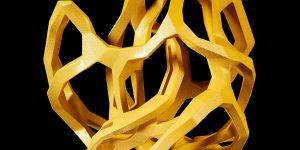
STARTS Prize Ceremony 2020
Once a year, Ars Electronica, Bozar and Waag award the STARTS Prize to outstanding artists and scientists on behalf of the European Commission. Watch the ceremony with this years STARTS Prize winners.
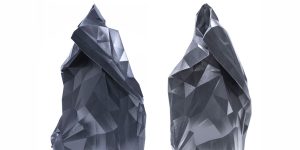
Uncertainty with AI-terity (Music Performance)
Koray Tahiroğlu (FI/TR)
The composition Uncertainty keeps the musician in a hesitant state of performance, providing a non-rigid but identifiable musical events, followed by ever shifting new sounds. Uncertainty is a composition written for the AI- terity instrument that comprises computational features of a particular artificial intelligence (AI) model to generate relevant audio samples for real- time audio synthesis. The unusual behaviour of the Al-terity puts the performer in an uncertain state during performance. Together with being able to move through timbre-changes in sonic space, the emergence of new sounds allows the musician to explore a whole new range of musical possibilities. Composition turns into a continuous state of playing, reformulating an idiomatic relationship with the Al-terity and opening up a fresh variety of musical demands.
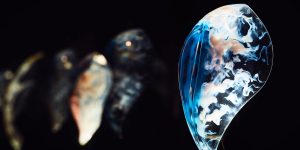
STARTS Day
The Science+Technology+Arts = STARTS Initiative is a program of the European Commission to encourage synergies between the arts and technology that support the innovation industry and society. STARTS promotes the inclusion of artists in research and innovation activities thoughout Europe.

STARTS Exhibition
Kepler's Garden on the JKU campus
STARTS is a platform aiming to foster alliances of technology and artistic practice that effectively implement European policymaking to nurture innovation and that also benefit the art world.
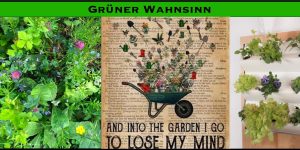
Green Nonsense
Green Nonsense is a creative food laboratory where knowledge transfer is of central importance. The aim is to spread awareness of wild medicinal herbs, which grow in the wilderness and are used in traditional European medicine, as "food and experience design".
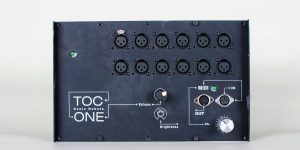
TOC ONE
Moritz Simon Geist (DE)
The Music Robotic System TOC ONE explores the sound properties of physical objects. It can be used to squeeze sound and rhythms out of almost everything - from music instruments like drums to experimental materials like metal sheets, household items or old car parts. The robotic actuators are mounted on clamps, to be attached in a free manner to surfaces, objects and instruments. The robotic actuators are controlled with standard music systems like Ableton Live or a keyboard.
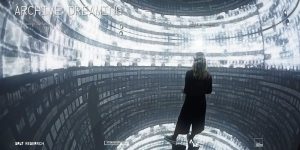
Synesthetic Architecture
Refik Anadol (TR), Kenric McDowell (US)
In Synesthetic Architecture, Refik Anadol (TR/US) and Kenric McDowell (US) take viewers on a journey into artistic and creative practice at the intersection of artificial intelligence, architecture and spatial design. They discuss both Refik’s personal experience of diving into deep learning technologies as a means of artistic expression and the development of this hybrid field over the past years.
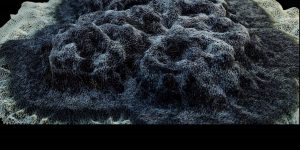
Fermenting Futures: BioArt and Yeast Biotechnology in Uncertain Times
Anna Dumitriu (UK), Alex May (UK)
“Fermenting Futures” is a project by artists Anna Dumitriu and Alex May which traverses BioArt, synthetic biology, digital technologies, sculpture, craft and installation and explores the significance of yeast biotechnology from a cultural perspective and seeks to engage arts audiences in the history and future of this important but under-recognised field.
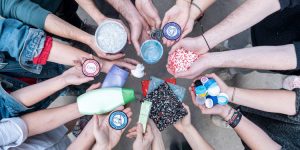
Meet the S+T+ARTS Community: Building Open Source Platforms
Joseph Klatt (US), Sören Lex (AT)
Precious Plastic and Precious Plastic Universe, started by industrial designer Dave Hakkens in 2013, is one of those platforms: focused on the reduction of plastic waste through sharing an open source toolkit of technologies and ideas, it has become a global movement of 80.000 people connected by the same passion and vision.
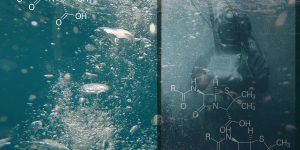
Meet the S+T+ARTS Community: Art & Science Collaborations
Ingeborg Reichle (AT), Michael Sauer (AT), Robertina Šebjanič (SI), Gjino Šutić (HR)
When artists, scientists and scientific research institutions join forces on collaborative projects, the collision of methods often leads to new and exciting perspectives for both the artistic and scientific practice.
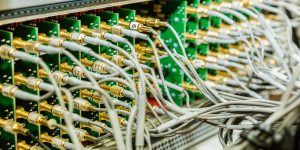
Ars Electronica AIxMusic Online Hackathon: Final Presentations
Annelies Termeer (NL) moderator + Participants
For the occasion of the first online Festival, Ars Electronica will host its first international AIxMusic Hackathon as part of the AIxMusic Festival 2020.
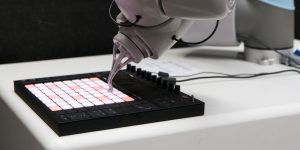
AIxMusic - Artificial Stupidity
Moisés Horta-Valenzuela (MX/US), Artemi-Maria Gioti (GR), Ali Nikrang (AT), Alex Braga (IT) and Portrait XO (US)
The panel on Artificial Stupidity invites artist present at the Ars Electronica Festival to share their experiences in the context of AIxMusic. AI is a media trend right now and a controversial topic.
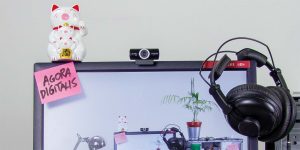
A Theory of Change
Anne Nigten (NL)
The STARTS Prize is an annual European prize for innovative projects at the interface of Science, Technology, and the ARTS. This article reflects on the most striking outcomes of a study that was conducted in the spring of 2020, to evaluate the first three STARTS Prize editions. The STARTS Prize aims to promote art as a catalyst for change and innovation in the fields of technology, science and the social sphere. It has mobilized an impressive number of artists, designers and engineers and built a strong brand in recent years.
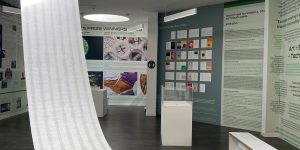
Mapping Collaborative Practice
Denise Doyle (UK), Richard Glover (UK), Martin Khechara (UK), Christian Cherene (ES), Norma Deseke (DE), Pei-Ying Lin (TW), Miranda Graaf (NL), Giulia Tomasello (IT), Tommaso Busolo (IT)
Interdisciplinary collaboration across the arts and sciences can create friction and uncertainty between creative partners from different backgrounds. How can we overcome these moments, and are they integral to any collaborative or emergent process? What role does art and science collaboration have in addressing global challenges in 2020? Chaired by Richter Glover and Martin Khechara, participants and researchers of the University of Wolverhampton’s STARTS Methodologies research project take part in this digital exchange of ideas.
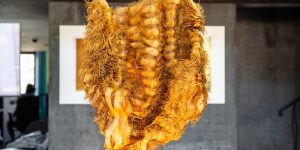
STARTS Prize Exhibition Tour
The annual STARTS Prize Exhibition presents a selection of current best practice examples at the intersection of science, technology and the arts. Kristina Maurer and Karla Spiluttini take the viewers on a journey through this year’s exhibited projects in Kepler’s Garden. From circular economy to the relationship between ecology and technology, through digital humanism and empathic approaches to artificial intelligence, the exhibition shows the outstanding diversity of artistic practice in the STARTS field.
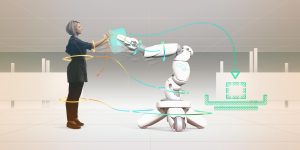
Salon Universitas
Melanie Baumgartner (AT), Florian Hartmann (AT), Christoph Guger (AT), Markus Hohenwarter (AT), Alicia Hofstätter (AT), Corinna Hörmann (AT), Martina Mara (AT), Kathrin Meyer (DE), Christopher Lindinger (AT)
This session brings together four of the exhibited teams – the LIT Robopsychology Lab, the JKU Linz School of Education, the LIT Soft Material Lab and the Institute for Integrated Circuits and their collaborative partner g.tec Medical Engineering – to discuss their creative process and prototype development.

STARTS Prize Forum: Andrea Ling
Andrea Ling (CA)
Andrea Ling, winner of this year’s Grand Prize for Artistic Exploration, introduces her winning project “Design by Decay, Decay by Design”, a series of artifacts that exhibit designed decay developed for the 2019 Ginkgo Bioworks Creative Residency on how to design a world without waste and talks about her artistic and creative process.
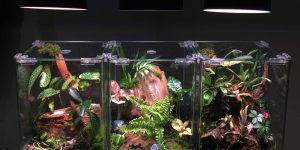
STARTS Prize Forum: Olga Kisseleva
Olga Kisseleva (RU)
Olga Kisseleva (RU), winner of this year’s Grand Prize for Innovative Collaboration, and Andrea Ling (CA), winner of the Grand Prize for Artistic Exploration, give insight into their practice.
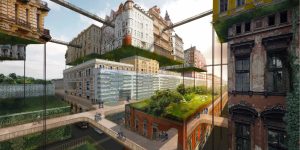
Art Thinking Forum: Humanizing Technology
Mara Balestrini (IT), Olga Kisseleva (RU), Alexander Mankowsky (DE), Hideaki Ogawa (JP/AT)
Art Thinking is a platform for discussing the role of art in the future, in the context of industry, society, and ecology. The forum is supported by the innovative communication design company Hakuhodo. In tandem with Ars Electronica's interest in emerging technologies and their effect on society, their forward-thinking creative approach strongly complements the topic of the panel: future arts, and how cutting-edge and creative artistic examples can be used to humanize technology and improve society.
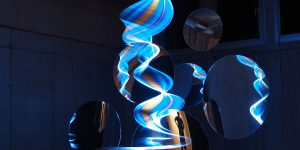
Art Thinking as Catalyst
Jurij Krpan (SI), Alejandro Martín (ES), Camille Baker (UK), Veronika Liebl (AT)
The Science+Technology+Arts = STARTS Initiative is a program of the European Commission to encourage synergies between the arts and technology that support the innovation industry and society. STARTS promotes the inclusion of artists in research and innovation activities thoughout Europe.


